Premium Only Content
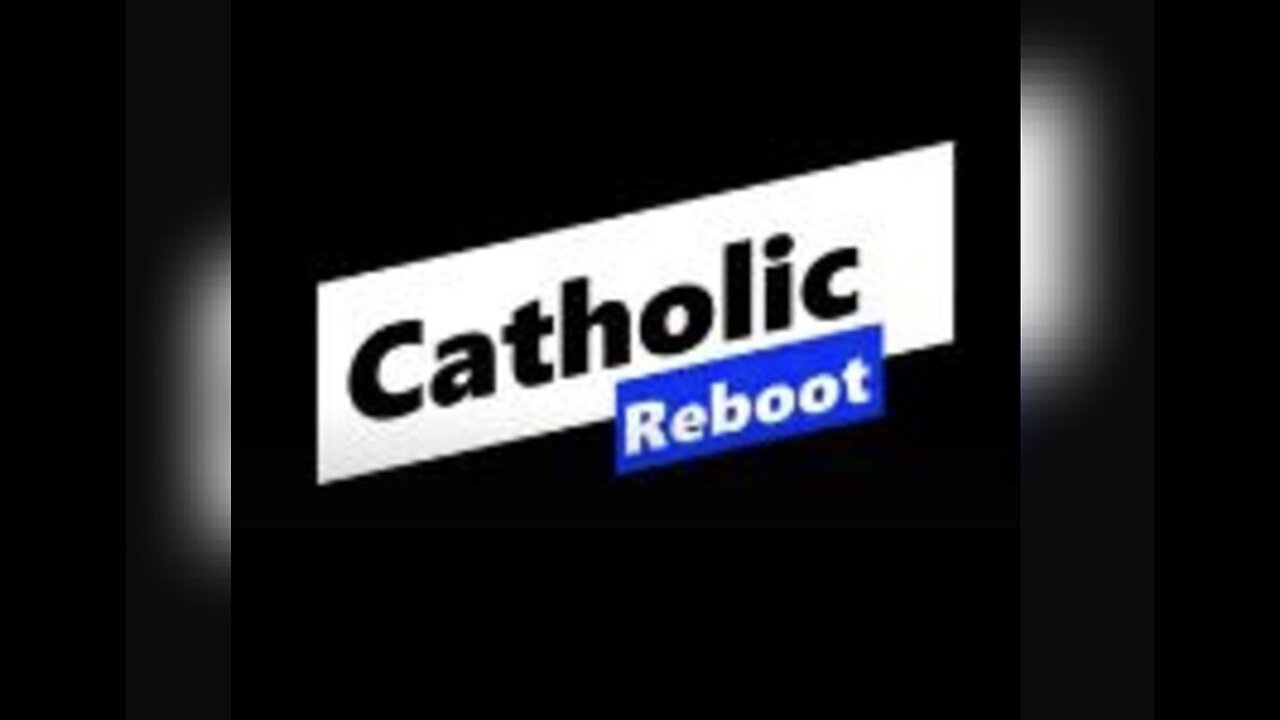
Episode 2333: The Eastern Rite: "Has it Right" with Bishop Spinosa and Nick Chapello
Nick: Welcome back to Catholic Reboot where I and the honorable Chor-bishop Anthony Spinosa will discuss “The Influence of the Desert Fathers on the Eastern Catholic Rites: A Liturgical and Doctrinal Continuum” but more importantly how this may deviate from the current influences coming for Our Holy Father and Rome.
Chor-bishop would you mind leading us in prayer?
BP Spinosa: Certainly!
Heavenly Father,
We gather in Your holy presence, seeking to draw nearer to You through the wisdom of the Desert Fathers and the rich traditions of the Western and Eastern Catholic rites. Guide our hearts and minds as we delve into the depths of Your mysteries. Grant us the grace to embrace the ascetical, liturgical, and theological insights handed down through the centuries. May our journey bring us closer to the divine life You offer, and may we always seek Your will in all that we do. Through Christ our Lord, we pray. Amen.
Nick: Your Excellency, correct me if I am in error but the Eastern Catholic Churches, including the Maronite, Byzantine, and Coptic rites, have a unique position within the broader Catholic tradition. They preserve liturgical and doctrinal traditions rooted in the early Catholic monasticism of the Desert Fathers, ascetics from Egypt, Palestine, and Syria who profoundly shaped Catholic spirituality and practice. The Eastern rites have retained many of these ascetical, liturgical, and theological insights through the centuries.
BP Spinosa: True but let me expand on the Influence of the Desert Fathers.
The Desert Fathers, such as St. Anthony the Great and St. Macarius of Egypt, established foundational principles of Catholic monasticism that continued to influence both Western and Eastern Catholic liturgies and doctrines. As great as St Augustine and St Thomas Aquinas were, they stood on the shoulders of the giants of the faith: the Desert Fathers. Their emphasis on asceticism, prayer, and mystical theology is evident in several aspects of both the Western and Eastern rites such as:
Liturgical Practices
Divine Liturgy: The structure and solemnity of the Divine Liturgy in Eastern Catholic rites reflect the Desert Fathers' emphasis on a profound and mystical encounter with God. Elements like the Great Entrance and the emphasis on silence and contemplation during the service continue the Fathers' practices.
Use of Icons: The veneration of icons, supported by the Desert Fathers as aids to prayer and windows to the divine, remains central in Eastern liturgical practice. Icons are integral to worship, embodying theological principles established by the early ascetics.
Doctrinal Continuity
Theosis: The Desert Fathers' teachings on theosis (divinization) remain a central tenet in Eastern Catholic theology. This doctrine emphasizes becoming more like God through ascetic practice, prayer, and participation in the sacraments.
Mystical Theology: The experiential knowledge of God, emphasized by the Desert Fathers, persists in the theological outlook of Eastern Catholic Churches. This mystical approach prioritizes direct, personal communion with the divine over intellectual understanding.
Nick: So your Excellency can we discuss the Modern Catholic Church and changing dynamics under Pope Francis's leadership, because it seems there has been a noticeable shift in the broader Catholic Church's approach to liturgy and magisterial teachings, aiming to align more closely with a modern, liberal worldview if not a Global view over the mystical body of Christ. These changes contrast sharply with the traditions upheld by both the Western and Eastern Catholic rites. For example,
Liturgical Changes
Simplification of Rituals: Significant changes include the simplification of liturgical rituals to make them more accessible and relatable to contemporary congregations, contrasting with the Eastern rites' preservation of elaborate and solemn liturgies that emphasize transcendence and mystery.
Inclusion and Participation: There has been a push for greater inclusivity and lay participation in the liturgy, including increased use of vernacular languages, more active roles for laypeople, and adaptations to make the liturgy feel more communal that may be seen as conflicting with the much needed hierarchical need of the liturgy.
Do I have this right?
BP Spinosa: Yes but even more so the doctrinal adaptations are very concerning.
Pastoral Approach: Pope Francis emphasizes a pastoral approach to doctrine, focusing on mercy, compassion, and accompaniment, including more flexible interpretations of traditional teachings on issues like marriage, family, and sexuality. But my question is, what about our doctrines, dogma’s, catechism and our faith and morals. What about the antiquities of the great saints and theologians and especially the great writings of the Desert Fathers. It is as if the Holy Father has created a new magisterium that begins and ends with his pontificate. I truly believe we are living in a time of the “Pope Francis Magisterium of the Church” and all that came before him as Pope or Vatican II has no purpose in the lives of Catholics. Too rigid as he loves to say. Too suicidal as he just recently expressed. I dare say what he has been doing to the Church is pure murder! This is a great tragedy and there is no wonder that over 400,000 German Catholics left the Church this year. Because with out the antiquities and traditions of our faith it like what St Ignatius of Antioch said in his letter to the Philadelphians, St. Ignatius wrote:
"For I heard some saying, If I do not find it in the ancient Scriptures, I will not believe the Gospel. And when I said to them, It is written, they answered me, That remains to be proved. But to me Jesus Christ is the ancient Scriptures; His cross, and death, and resurrection, and the faith which is by Him, are undefiled monuments of antiquity."
It is as if our Holy Father has a servere case of “Itching Ears”.
2 Timothy 4:3-4
"For there shall be a time, when they will not endure sound doctrine; but, according to their own desires, they will heap to themselves teachers, having itching ears:
And will indeed turn away their hearing from the truth, but will be turned unto fables."
Nick: So your Excellency do you feel we are wading too far out into the surf of Ecumenical and Interfaith Dialogue? There seems to be a stronger emphasis on ecumenical and interfaith dialogue, seeking common ground with other Christian denominations and world religions as part of a broader effort to foster unity and understanding in a pluralistic world that may be at the cost of the need for conversion to the mystical body of Christ over the heretical faiths. At times, it seems Pope Francis enjoys attacking his own faithful in order to gain favor with the heretics. He seems to hate the traditional Catholics but has a great love for Protestant minded Catholics not to mention straight up pagan faiths. Do I have this right?
AB Spinosa: Well what you are pointing to is the tensions and lack of continuity. We have a severe rupture in Hermeneutics. The key ruptures are:
Theological Discontinuity: A break in the doctrinal teachings of the Church, where new interpretations or teachings diverge significantly from established ones. This can lead to confusion and division among the faithful.
Liturgical Changes: A rupture in liturgical practices involves significant changes to the way worship is conducted, which may depart from traditional forms and rites. This can affect the sense of sacredness and continuity within the worship experience.
Ecclesial Authority: Rupture due to challenges to or rejections of ecclesial authority, including the authority of the Pope, bishops, and councils. This undermines the hierarchical and authoritative structure of the Church.
He is even speaking about the removal of Papal Authority.
These modernizing efforts have generated tensions within the Catholic Church and especially the Eastern rites. Traditionalists in both the East and the West express concern that such changes dilute the rich heritage and doctrinal clarity of the faith, while reformists argue that these adaptations are necessary to make the Church more relevant and responsive to contemporary issues.
As to the Eastern Churches, while in communion with Rome, they have largely retained their traditional liturgical and doctrinal practices. They continue to emphasize the spiritual and ascetical legacy of the Desert Fathers, providing a counterbalance to modernizing trends within the broader Catholic Church. This adherence to ancient traditions offers spiritual depth and continuity, appealing to believers seeking a profound, mystical connection with God amid rapid modern changes.
But most importantly Nick, the only thing that will change all this confusion is prayer and lots of Marian devotions. She is our intercessor to her Son. She is holding back his arm of chastisement. I can only imagine how bad Jesus wants to Fare il culo a qualcuno which is Italian for opening a can of whoop ass.
But nobody can remove a Pope. Only Christ through the Holy Ghost can correct his Church. In the meantime, we must suffer and offer up our sufferings but we must never concede to error. If it is not Catholic and not based in the truth of our Traditions we simply do not follow.
Conclusion
Nick: Your Excellency it is my hope that the Eastern Catholic rites' remain steadfast adherence to the spiritual and doctrinal heritage of the Desert Fathers exemplifies deep continuity within the Christian tradition because I fear the West will concede. So, despite pressures from modernizing influences within the broader Catholic Church, these rites maintain their ancient practices and theological perspectives, providing a rich, contemplative dimension to Catholic worship. This enduring legacy not only honors the memory of the Desert Fathers but also offers a spiritual oasis for contemporary believers seeking a profound, mystical connection with God.
Do you mind ending this episode with a prayer?
BP Spinosa: Certainly
Almighty and Eternal God, We give You thanks for the opportunity to reflect on the sacred heritage of the Desert Fathers and the enduring traditions of both the Western and Eastern Catholic Church. As we conclude this time of study and prayer, we ask for Your continued guidance and protection. Help us to live out the teachings we have received, to grow in holiness, and to seek a deeper union with You. May Your divine wisdom illuminate our path, and may Your love transform our lives. We ask this through the intercession of the Blessed Virgin Mary and all the saints, and in the name of Your Son, Jesus Christ. Amen.
God Bless Nick and keep up the good fight!
Nick: Thank you your Excellency now get to Chicago on August 18th and lead our Procession on the feast of St Rocco di Potenza.
-
 21:06
21:06
BlackDiamondGunsandGear
6 hours agoPSA Micro Dagger Self-Destructs During Shooting! What Happened…
11K5 -
 6:27:09
6:27:09
Right Side Broadcasting Network
5 days agoLIVE REPLAY: RSBN Pre-Inauguration Coverage: Day Three in Washington D.C. - 1/18/25
247K56 -
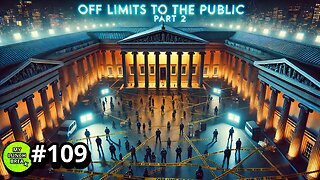 25:09
25:09
MYLUNCHBREAK CHANNEL PAGE
11 hours agoOff Limits to the Public - Pt 2
50.8K42 -
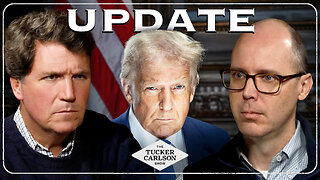 1:36:11
1:36:11
Tucker Carlson
1 day agoSean Davis: Trump Shooting Update, & the Real Reason Congress Refuses to Investigate
334K404 -
 5:13
5:13
Russell Brand
2 days agoHost GRILLS Pzizer CEO Over Vaccine Efficacy
118K244 -
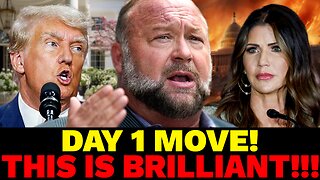 14:53
14:53
Stephen Gardner
6 hours ago🔥Alex Jones WARNS Trump not to DEFAULT on THIS!!
52.9K234 -
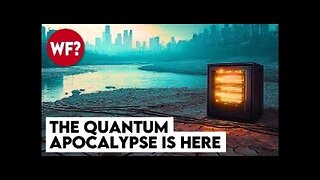 31:54
31:54
The Why Files
5 days agoThe Quantum Apocalypse: All Your Secrets Revealed
112K59 -
 7:05:17
7:05:17
Sgt Wilky Plays
10 hours agoSaturday Hangout and Games
65.2K4 -
 8:23:23
8:23:23
DeadMan88
11 hours agoWGT Golf Road to Master
40.7K5 -
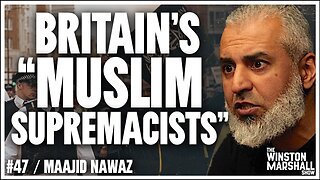 1:35:04
1:35:04
Winston Marshall
2 days ago“This Wasn’t Accidental!” Maajid Nawaz SPEAKS OUT on R*PE Gangs and The REAL Cover-Up
117K66